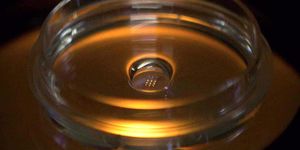An experiment, performed by scientist He Jiankui, which edited the genes of Chinese twins as a way of trying to immunise them against HIV, may have failed according to scientists after the research was recently published.
The MIT Technology Review released multiple excerpts of the paper written last year, and having consulted scientists regarding the findings the paper suggests, the results are in fact damning of the original aim, with all the scientists agreeing that there was no quantifiable evidence to suggest the scientist was successful in replicating the gene, called CCR5, which enables HIV immunity.
One of the scientists, Fydor Urnov, of the University of California, made the point that “The claim they have reproduced the prevalent CCR5 variant is a blatant misrepresentation of the actual data and can only be described by one term: a deliberate falsehood”. This view was also supported by Rita Vassena, scientific director at the Eugin Group, who said “ This work offers little justification for the editing and transfer of human embryos to generate a pregnancy. The idea that editing-derived embryos may one day be able to ‘Control the HIV epidemic” as the author claims, is preposterous.
The editing tool used by the team was the revolutionary, but highly controversial, system Crispr. The tool’s controversy has come, as demonstrated by this experiment, as a result of its ability to cause unwanted edits to the gene, which has meant use on humans is widely ethically challenged. The couple who decided to take part in the experiment did so due to the wide stigma in China regarding HIV, and since the father was HIV positive, it was extremely difficult to get access to fertility treatment, despite the presence of the established system of ‘Sperm Washing’ which prevents the infection being passed to unborn children. The stigma surrounding the infection also caused the authors to leave names such as those of the fertility doctors out of the paper, as well as presenting a false date of birth.


